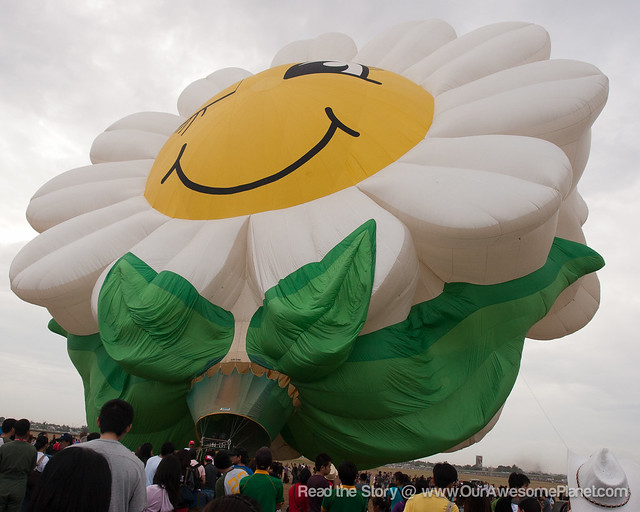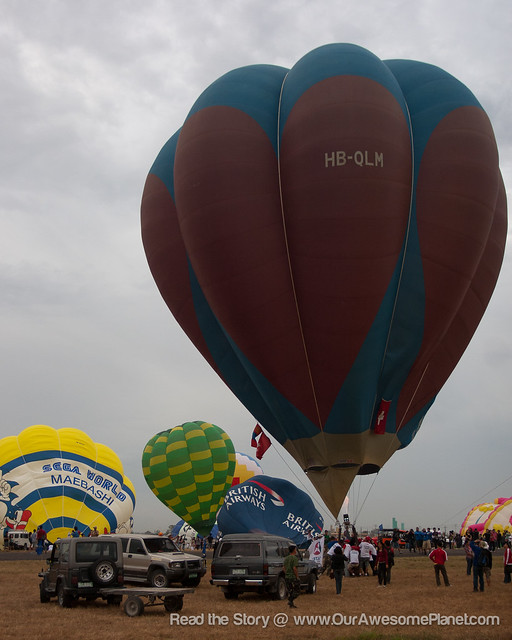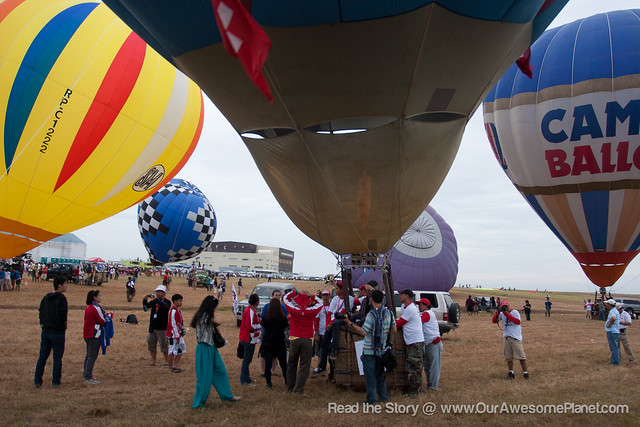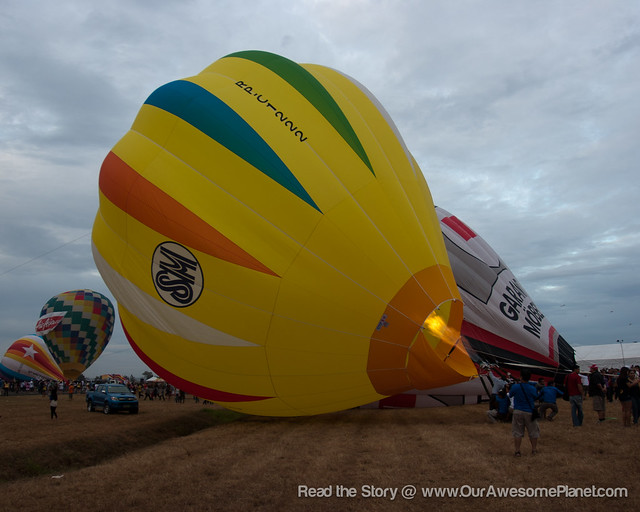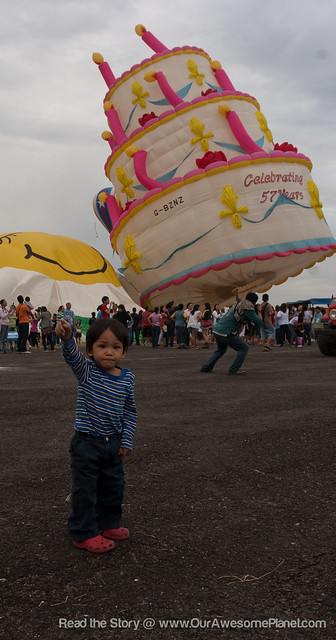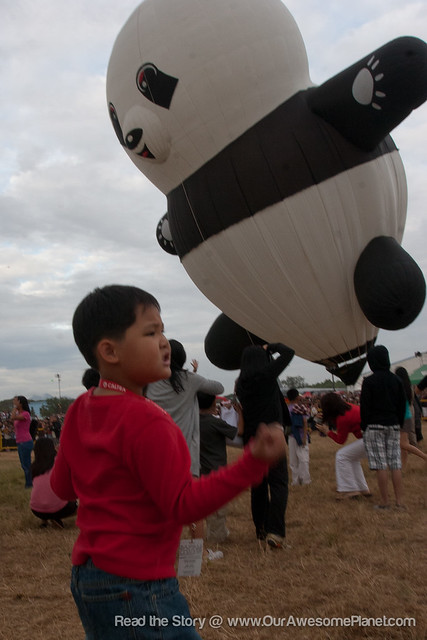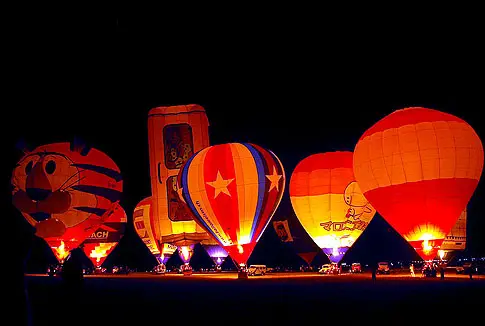
-
МјРЇСІИёСЖШИМі
-
 PASIGARBO SA SUGBO (Festival of Festivals)
PASIGARBO SA SUGBO (Festival of Festivals) 12,160
12,160 -
 Flores De Mayo in the Philippines
Flores De Mayo in the Philippines 11,718
11,718 -
 Ibalong Festival
Ibalong Festival 11,226
11,226 -
 Ati-atihan Festival10,918
Ati-atihan Festival10,918 -
 CARACOL FESTIVAL10,296
CARACOL FESTIVAL10,296 -
 Gayon Bicol Festival10,177
Gayon Bicol Festival10,177 -
 MAGAYON FESTIVAL10,112
MAGAYON FESTIVAL10,112 -
 LANZONES FESTIVAL9,783
LANZONES FESTIVAL9,783 -
 Pasigarbo sa Sugbo9,745
Pasigarbo sa Sugbo9,745 -
 Budbud Kabog Festival @Catmon, Cebu9,560
Budbud Kabog Festival @Catmon, Cebu9,560
The Philippine International Hot Air Balloon Fiesta is an
annual event that occurs between January and February
at the Omni Aviation Complex in Clark Field, Angeles City,
Pampanga. It features multicolored hot air balloons with
more than a hundred balloon pilots from around the world.
This three to four day hot air balloon event is the biggest
aviation sports event in the Philippines.
The festival also features a number of events in skydiving,
flag jumps, micro light and rocketry demonstrations, small
plane fly-bys and fly-ins, remote-control airplane and
helicopter flying exhibitions, freestyle aerobatics, precision
maneuvers, light airplane balloon bursting, ultra-light
flying formation and bomb dropping, kite-making and
choreographed kite-flying, hi-start launch gliding, pylon
racing, banner towing, aero-modeling symposium and
races between ultra lights and motorcycles.[1] An estimated
60,000 visitors locally and from around the world come in
to see this event.
The Philippine International Hot Air Balloon Fiesta is an annual event that
occurs between January and February at the Omni Aviation Complex in
Clark Freeport Zone, Pampanga. It features multicolored hot air balloons with
more than a hundred balloon pilots from around the world. This three to
four day hot air balloon event is the biggest aviation sports event in the
Philippines.
The festival also features a number of events in skydiving, flag jumps, micro light
and rocketry demonstrations, small plane fly-bys and fly-ins, remote-control
airplane and helicopter flying exhibitions, freestyle aerobatics, precision
maneuvers, light airplane balloon bursting, ultra-light flying formation and bomb
dropping, kite-making and choreographed kite-flying, hi-start launch gliding,
pylon racing, banner towing, aero-modeling symposium and races between ultra
lights and motorcycles. An estimated 60,000 visitors locally and from around the
world come in to see this events.
History
1994/1995
In 1994, three years after the devastating effects of the G.Mount Pinatubo
eruption, Tourism Secretary Mina Gabor together with Korean
businessman and hot-air balloon pilot, Mr. Sung Kee Paik, and
British Airways General Manager, Mr. John Emery, and the German
aviation enthusiast Max Motschmann engineered the Philippine
International hot air balloon festival to help jumpstart the local economy
and spirit of the Central Luzon region with the commitment of developing
hot air ballooning as an aviation sport in the country and making the
Philippines one of the leading sports aviation and travel destinations in
the Asia Pacific region. The 1994 event originally organized by the
Department of Tourism (DOT), the Hot Air Balloon Club, the Clark
Development Corporation and British Airways initially began with 21
balloon pilots from 10 countries and one entry from the Philippines.
The success of the festival in 1994 brought about an increase in the
number of participants in 1995 to 27 balloons including a basketless
one-man balloon and two entries from the Philippines. The 1995
festival also saw the introduction of ultra light planes to the events.
1996-1998
By 1996 responsibility of the event was transferred from the
Department of Tourism to Air Ads, Inc. under the watchful eyes
of Captain Joy Roa who is also an avid licensed balloon pilot.
Between 1996 and 1998, the growing popularity of the festival
was expanded to include other aero-sports activities such as
sky diving, paragliding, motorized hang gliding, remote controlled
model aircraft (aero modelers), and kite flying. Aerobatic stunts
and precision maneuvers courtesy of the Blue Diamonds and
later the Red Aces of the Philippine Air Force became a regular
attraction of the festival.
1999-2003
Financial difficulties in 1999 led to the cancellation
of the festival, but saw a resurgence in 2000
with 12 balloons and 18 light planes from Thailand,
Japan and Singapore, all participating in an air
rally which has become a regular component of the
festivities. 2003 saw a change in the traditional
ballooning format. Specially designed balloons in
the shape of a flying newspaper from Korea and a
large dog from Japan made their debut over the
Pampanga skyline. Balloon participation from Malaysia,
Korea, Japan, Germany, the United Kingdom, Sweden,
Czechoslovakia, and the Netherlands drew crowds from
around the world.
2004- Present
Currently, the Philippine International Hot Air Balloon Festival continues to be a popular international
sports aviation event. The 2006 festival featured 30 multicolored hot air balloons and more than a
hundred balloon pilots from Finland, Sweden, the Netherlands, Germany, the Czech Republic, the
Slovak Republic, Hungary, the United Kingdom, Canada, the United States, Japan, Korea, Malaysia,
Singapore, Thailand and the Philippines. It also drew an approximated 60,000 visitors to the event.

- ЁЄ
- ЁЄ
- ЁЄSalapan Festival
- ЁЄEmpanada Festival (Batac City)
- ЁЄPADUL-ONG FESTIVAL
- ЁЄKaumahan Festival in Barili
- ЁЄKAGASANGAN FESTIVAL
- ЁЄLalin Festival in Asturias
- ЁЄTinabuay Festival
- ЁЄGayon Bicol Festival
- ЁЄPINYASAN FESTIVAL in CAMARINES
- ЁЄMAGAYON FESTIVAL
- ЁЄBANAUAN FESTIVAL (BARANGAY.GUA
- ЁЄThe Tuna Festival in Gensan
- ЁЄPINTOS FESTIVAL BOGO CITY, CEB



- ЁЄ
- ЁЄCEBU WESTOWN LAGOON
- ЁЄGREEN LAGOON, COMPOSTELA
- ЁЄCALLAO CAVE
- ЁЄMOUNT PINATUBO IN PHILIPPINES
- ЁЄBATAN ISLAND in Batanes.
- ЁЄCALAGUAS ISLAND, CAMARINES NOR
- ЁЄAGHO ISLAND
- ЁЄCARAMOAN ISLAND IN CAMARINES S
- ЁЄSAMBAWAN ISLAND
- ЁЄPLACES TO VISIT IN LANAO DEL N
- ЁЄPLACES TO VISIT IN ZAMBOANGA C
- ЁЄPlaces to visit in Rizal Provi
- ЁЄHISTORIC TOWN OF VIGAN CITY, I
- ЁЄCAMBUGAHAY FALLS, SIQUIJOR ISL













 ЧЪРкДхФФ ОпАЃЛѓДу ПРЧТ
ЧЪРкДхФФ ОпАЃЛѓДу ПРЧТ 11ГтПЌМг МвКёРкИИСЗ 1РЇ
11ГтПЌМг МвКёРкИИСЗ 1РЇ
 ГЛАд ИТДТ ОюЧаПј УЃБт
ГЛАд ИТДТ ОюЧаПј УЃБт
 ИЎОѓ ЧаБГ ЙцЙЎБт
ИЎОѓ ЧаБГ ЙцЙЎБт
 СжИЛПЁ ГЛАЁ ОЕ КёПыРК?
СжИЛПЁ ГЛАЁ ОЕ КёПыРК? УжАэАЁМККё РЬКЅЦЎ СёБтБт
УжАэАЁМККё РЬКЅЦЎ СёБтБт
 ЧіСіПЁМЕЕ ЧЪРкДхФФ!
ЧіСіПЁМЕЕ ЧЪРкДхФФ! ЧіСіПЁМ АЁДЩЧб
ЧіСіПЁМ АЁДЩЧб









 ЧЪРк ЦЏБо Ч§ХУ! ФСНУОюСі МКёНК
ЧЪРк ЦЏБо Ч§ХУ! ФСНУОюСі МКёНК



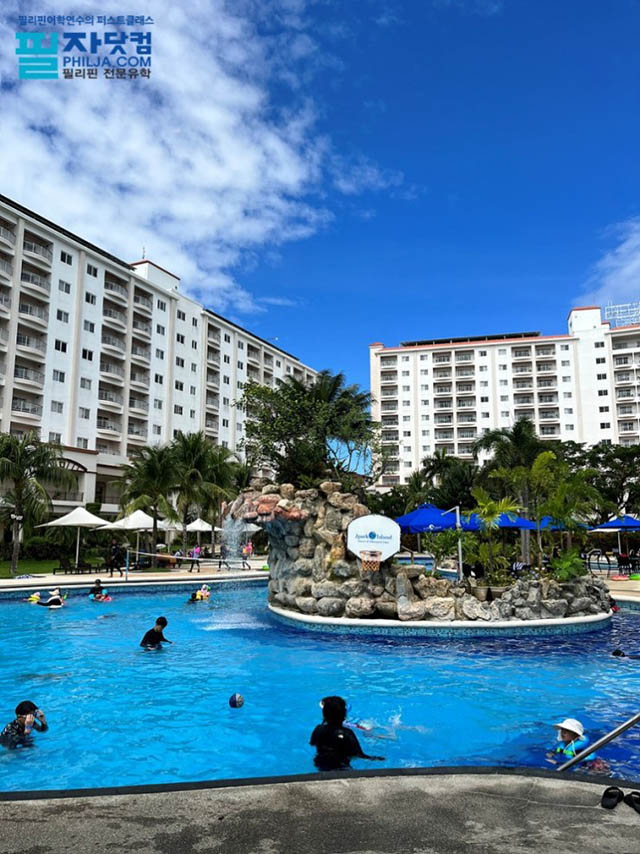 АЁСЗПЌМіЗЮ ДйЧдАд ОзЦМКёЦМ
АЁСЗПЌМіЗЮ ДйЧдАд ОзЦМКёЦМ







